Edie Melson's Blog, page 192
August 3, 2020
Why Write?
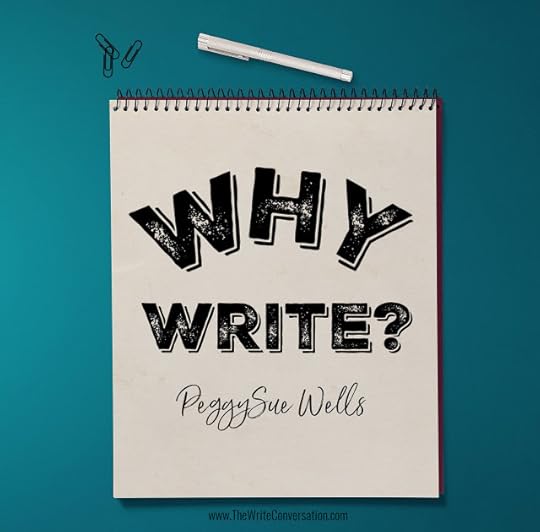
by PeggySue Wells @PeggySueWells
Last night, or should I say this morning, I dropped into bed at 2:00 a.m. What possesses me to spend long hours at the computer when my mailbox boasts more rejections than paychecks? If my labors are not putting groceries on the table or contributing to the mortgage payment, why do I write, anywayWriting is a dance that is sometimes swift and electrifying, sometimes slow and intimate. The craft is a vital part of relationship with individuals, and with the larger world I am privileged to be a part of.
Painting with Words
Writing is a creative art form. I watch my artist daughter painstakingly mix watercolors and oils, reaching, searching for the perfect hue. I sit in front of my computer palette, swirling through the thesaurus, dabbing a stronger verb over a weak one, highlighting a bright adjective with a vivid one, rewording sentence structure to reflect a compelling mood.
Then as if it’s a savory sourdough, I put the mix aside for a time. The text bubbles and ferments in my thoughts. Returning to the computer, I knead the language for a better recipe. Occasionally I am pleasantly surprised to see how well this mixture of phrases blended to produce the desired texture and aroma.
Like a satisfying surf and turf, some projects are fashioned from a partnership. Writing with a kindred spirit is double the fun. The combined creativity of two artists with very different talents marinates together into a nourishing whole. In reality, all published writing is a salt and pepper partnership as a writer brings the main course while editor and publisher catch and season the vision.
My writing is an intricate weaving of carefully weighed and selected emotion-charged words. Another daughter plaits fiber with dye, spinning wool into yarn, and knitting yarn into gifts of scarves and afghans. I can’t sew and maintain my salvation, so I revisit my manuscript to untangle knotted grammar and iron out wrinkled sentences before dedicating my gift to someone dear.
Exploring With Words
I write to know. Exploring and researching expands my horizons. It gratifies my hunger to understand this zany world we live in together, and to appreciate fellow travelers on this challenging journey of life.
I write to be known. Not in terms of fame, though like my son once said, “I wouldn’t mind being famous.” Rather, through words I am open, transparent, and vulnerable.
I write to give. Writing allows me to encourage and inspire others far beyond my immediate sphere of influence. It permits me to possibly be the wind under the wings of another who is weary, disheartened, and disillusioned.
Writing is a form of worship. When I create, I reflect the great Creator who fashioned the heavens and the earth. Majestic literature, simple lines of comfort, and lyrics of adoration are devotions from the author’s heart to the Revered. Sometimes I write for the multitudes, commonly for the audience of One.
I enjoy both the challenges and victories of the craft because it satisfies my spirit. I write because it is an essential. Though, I wouldn’t mind a paycheck. Or two.
TWEETABLEWhy Write? thoughts & encouragement from author @PeggySueWells on @EdieMelson (Click to Tweet)
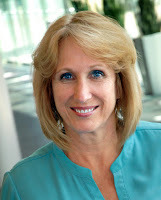 Tropical island votary and history buff, PeggySue Wells parasails, skydives, snorkels, scuba dives, and has taken (but not passed) pilot training. Writing from the 100-Acre wood in Indiana, Wells is the bestselling author of twenty-eight books including The Slave Across the Street, Slavery in the Land of the Free, Bonding With Your Child Through Boundaries, Homeless for the Holidays, and Chasing Sunrise. Optimistic dream-driver, PeggySue is named for the Buddy Holly song with the great drumbeat. At school author visits, she teaches students the secrets to writing, and speaks at events and conferences. Connect with her at www.PeggySueWells.com, on Facebook at PeggySue Wells, and Twitter @PeggySueWells.
Tropical island votary and history buff, PeggySue Wells parasails, skydives, snorkels, scuba dives, and has taken (but not passed) pilot training. Writing from the 100-Acre wood in Indiana, Wells is the bestselling author of twenty-eight books including The Slave Across the Street, Slavery in the Land of the Free, Bonding With Your Child Through Boundaries, Homeless for the Holidays, and Chasing Sunrise. Optimistic dream-driver, PeggySue is named for the Buddy Holly song with the great drumbeat. At school author visits, she teaches students the secrets to writing, and speaks at events and conferences. Connect with her at www.PeggySueWells.com, on Facebook at PeggySue Wells, and Twitter @PeggySueWells.
Published on August 03, 2020 22:00
August 2, 2020
Realm Makers 2020 Recap

by Ralene Burke @RaleneB
In light of the COVID-19 regulations, Realm Makers hosted their first virtual conference in July 2020. With the use of new technology, standout faculty, knowledgeable staff, and a fantastic schedule, Realm Makers presented a unique experience for speculative fiction writers. The quick turnaround—from in-person event to online—left writers and publishing professionals wondering how effective and cohesive the conference would be. But the Fantasy Network helped Realm Makers embrace new technology to engage the attendees. Workshops were held through CrowdCast, pitch appointments were hosted on Zoom (using breakout rooms), and writers were able to connect in the social hub Discord. While there were a couple hiccups, the majority of the conference went on without a hitch. Even the awards ceremony was made extra special by having the winners accept their award via CrowdCast.
The faculty for #RealmMakers2020 was really something special. We enjoyed not one, not two, but THREE amazingly inspiring keynotes from N.D. Wilson, C.J. Redwine, and Thomas Locke (also known as Davis Bunn). These three authors/speakers, along with Steven James, also gave in depth continuing sessions that the attendees have been raving about ever since.
To add to the fun and learning occurring in the workshops, #RealmMakers2020 also had some fun events, including a trivia night, awards ceremony, and an afterparty hosted by Havok. Many of the vendors and publishers in the virtual vendor hall held their own “live” sessions as well. There may have even been an online “game” hall for people to hang out and play games.
The highlight of each Realm Makers conference is the Realm Award ceremony, which is a costumed event. Of course, this year, we were all attending virtually—but costumes were still encouraged! Still, what a blessing it was to celebrate with the winners.
Book of the Year was presented to Emily Hayse for Seventh City, which also took home the Realm Award for fantasy. Other award winners included: Brand of Light by Ronie Kendig (sci-fi AND Alliance Award), Fyrian’s Fire by Emily Jeffries (Debut), Mercury On Guard by Steve Rzasa (supernatural), Amish Werewolves of Space by Kerry Nietz (horror), To Best the Boys by Mary Weber (YA), Hello Ninja by N.D. Wilson (children’s), Iggy & Oz: The Plastic Dinos of Doomby J.J. Johnson (MG), and Heart of Curiosity by H.L. Burke (Parable award for book cover).
Congrats to all the winners!
At the end of the Realm Award ceremony, founder/director Rebecca P. Minor announced that Realm Makers would be returning to the Westport Chalet in St. Louis in 2021 with Frank E. Pertti as the keynote speaker. Squeals of joy abounded! (Though certainly we could not hear them because we were online and muted.)
For me, while I loved listening to the few workshops I could sit in on, the best part of the conference was what I love about every Realm Makers conference—networking and meeting new friends! I hung around in the chat room, helping newbies find their way around, answering questions about everything from writing to social media, and reconnecting with friends.
#RealmMakers2021 will be twice as special because it will be the first time many of the Realm Makers tribe will have seen each other in two years. What joy it will be to hug people in person, to gush over books and swag, and to just remember what it’s like to really fit in somewhere.
Here’s to you, #RealmMakers2021!
TWEETABLERealm Makers 2020 Recap - @RaleneB on @EdieMelson (Click to Tweet)
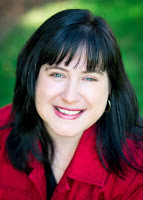 Whether she’s wielding a fantasy writer’s pen, a social media wand, or a freelance editor’s sword, Ralene Burke always has her head in some dreamer’s world. And her goal is to help everyone #SHINE Beyond their circumstances! Her novels, Bellanok and Armor of Aletheia, are available on Amazon. More fantasy novels coming soon!
Whether she’s wielding a fantasy writer’s pen, a social media wand, or a freelance editor’s sword, Ralene Burke always has her head in some dreamer’s world. And her goal is to help everyone #SHINE Beyond their circumstances! Her novels, Bellanok and Armor of Aletheia, are available on Amazon. More fantasy novels coming soon!When her head’s not in the publishing world, she is wife to a veteran and homeschooling mama to their three kids. Her Pinterest board would have you believe she is a master chef, excellent seamstress, and all-around crafty diva. If she only had the time . . . You can also find her on Facebook, Instagram, Twitter, or at her website.
Published on August 02, 2020 22:00
August 1, 2020
Principles of Being a Truth-Teller
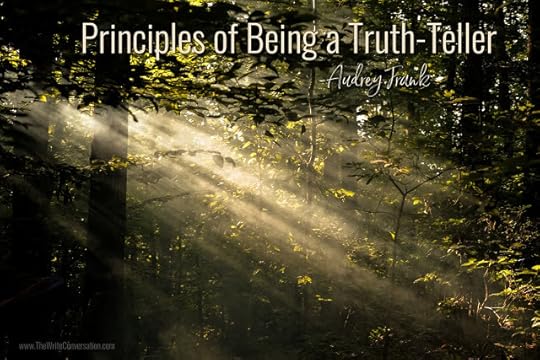
by Audrey Frank @AudreyCFrank
In a time of universal deceit—telling the truth is a revolutionary act. - George Orwell
The Lord sent Nathan to David (2 Samuel 12:1).
Throughout my life, God has been faithful to send truth-tellers brave and bold, willing to tell me what I could not see or refused to see on my own. Their words almost always made me angry inside, and often made me defensive, although I never showed it on the outside. But deep in my heart truth hit its mark every time. Before my truth-tellers even finished speaking, I could feel truth’s piercing power, beginning the work of turning my heart inside out, inviting me to be free.I can trace my freedom journey along those crucial moments of truth, the people courageous enough to confront my disillusionment and sin.
Thank God for truth-tellers.
The Old Testament prophet Nathan was a truth-teller, and his courage changed a king and a kingdom.
The most general word used for prophet in the Old Testament is the Hebrew word nabi, meaning “to bubble forth, as from a fountain.” Prophets were mouthpieces for God, bubbling forth, as it were, the message given to them by God.
King David trusted Nathan. He spoke intimately with him and frequently sought his counsel. Nathan was a listener and King David knew he could depend on him.
Early in his relationship with David, Nathan learned the difference between answering with his opinion and giving God’s word on a matter. Shortly after the new king settled in his palace, he looked around in dismay at the finery of his dwelling place in comparison to the tent which housed the ark of God. Should he build a magnificent house for God? Nathan’s counsel to him was to do whatever he had in mind, for the Lord was with him either way.
That night the word of the Lord came to Nathan, correcting and rebuking the counsel he had given without first consulting the Lord. Who was David or any man to provide a house for the living God? His dwelling was with His people. Duly chastised, Nathan returned to David the next morning, as described in the understatement of 2 Samuel 7:17, Nathan reported to David all the words of this entire revelation.
Nathan learned to obey without hesitation, elaboration, or omission.
By the time the Lord sent Nathan to David years later to speak truth about the king’s illicit relationship with Bathsheba, Nathan was a seasoned truth-teller loyal to God and God’s people.
Christian writers, like Nathan, have a responsibility to steward both the truth and those to whom we speak it. Truth must be stewarded, and so must people. A steward is one who administers or takes care of anything or anyone as the agent of another. Truth-tellers administer truth as agents of the Lord. We take care of our readers in His name. We answer to God, and His standards are holy, his love for people unconditional.
There are several principles we can learn from Nathan about how to tell the truth in a way that honors both God and the people to whom He sends us.
Principles of Being a Truth-Teller
Be Sure You are Sent
2 Samuel 12:1 tells us, “The Lord sent Nathan to David.” In today’s world of fiery issues and loud arguments, we would do well to make sure we are sent to speak before doing so. There have been times I have felt so strongly about an issue I typically avoid that I have had to obey the Lord and write about it. Other times, I have spent hours crafting a treatise full of truth and in the end, I have no peace at all about sharing. So it gets filed away, entrusted to the One who I trust to lead me.
Be sure you are sent. If you don’t have peace about pressing send, wait. Your waiting on God cannot stop His truth from accomplishing its purpose in the world. As Proverbs 25:11 says, Like apples of gold in settings of silver is a word spoken in right circumstances.
Be Obedient
On the other hand, you may have a message burning in your heart that you haven’t penned yet because you are afraid. Or maybe you are unsure. Or maybe you are a conflict-avoider or think your words can’t make that much difference in the world.
Think for a moment if Nathan had let such feelings stop him. He would not have confronted King David, Solomon would not have been born, we would not have much of the wisdom of Proverbs, the temple would not have been rebuilt… just for starters.
Seek wise counsel if you must and pray for God to give you faith and courage. When the peace comes, press send.
Be obedient, and God may change kings and kingdoms through your obedience.
Tell Stories
I have great admiration and respect for my friends among you who write fiction. It is a great gift, and God frequently uses metaphor, parable, and allegory to pierce the human heart with truth. He can also use true stories, the stories of His work in our lives and others’.
Stories are one of the most effective ways to share truth. Like a megaphone, they amplify the truth. Tell stories, and trust the Holy Spirit to work in the hearts of your readers.
Leave the Outcome to God
After telling a story, Nathan waited patiently for God to work in David’s heart (see 2 Samuel 12:5-6). It was then that the truth hit its mark in David. Nathan understood he was a mere messenger and the work of changing hearts belonged to God alone.
When Nathan was finished, he went home and left the outcome to God. He had delivered God’s words for David, and he had not once tried to make David respond a certain way. He understood that the work of truth between the Lord and a person is private, powerful, and intimate. Nathan had done his part; he told David the truth.
It is so important that we understand, as Elisabeth Elliot said, “Obedience is our job; Outcome is God’s.”
Nathan understood this, and he no doubt slept soundly that night even as the king spent the night in fasting and prayer, his life turned upside down by the encounter with the old prophet who dared tell him the truth.
We writers are not old testament prophets. But we have been entrusted with the Word of God, the Bible. We’ve been given the privilege of wordsmithing. As we walk with Jesus, listening to Him, loyal to Him, He will lead us to those who are waiting to hear the truth we have to tell. When we do that, we can leave the outcome of our obedience to Him. In fact, we can wait with joy and anticipation to see the marvelous things He will do.
Lord, make me a wise and courageous truth-teller. Use my obedience to set people free with your Truth. Amen.
TWEETABLENathan, the Truth-Teller - insight and encouragement from @AudreyCFrank on @EdieMelson (Click to Tweet)
 Audrey Frank is an author, speaker, and storyteller. The stories she shares are brave and true. They give voice to those whose words are silenced by shame, the hard things in life that don’t make sense, and the losses that leave us wondering if we will survive. Audrey and her family have spent over twenty years living and working among different cultures and world views, and she has found that God’s story of redemption spans every geography and culture. He is the God of
Instead
, giving honor instead of shame, gladness instead of mourning, hope instead of despair. Although she has three different degrees in communication and intercultural studies, Audrey’s greatest credential is that she is known and loved by the One who made her.
Audrey Frank is an author, speaker, and storyteller. The stories she shares are brave and true. They give voice to those whose words are silenced by shame, the hard things in life that don’t make sense, and the losses that leave us wondering if we will survive. Audrey and her family have spent over twenty years living and working among different cultures and world views, and she has found that God’s story of redemption spans every geography and culture. He is the God of
Instead
, giving honor instead of shame, gladness instead of mourning, hope instead of despair. Although she has three different degrees in communication and intercultural studies, Audrey’s greatest credential is that she is known and loved by the One who made her.Audrey is the author of Covered Glory: The Face of Honor and Shame in the Muslim World (Harvest House Publishers), an outpouring of Audrey’s heart to introduce others to the God of Instead. Shame is not unique to the developing world, the plight of the women behind veils, young girls trafficked across borders; shame is lurking in hearts everywhere. Through powerful stories from women around the world, Covered Glory illuminates the power of the Gospel to remove shame, giving honor instead. Available at favorite booksellers: Barnes & Noble , Books A Million, Amazon.
You can also find Audrey at www.audreyfrank.com, as well as on Twitter and Facebook
Published on August 01, 2020 22:00
July 31, 2020
Don't Let Your Faith Become Stale
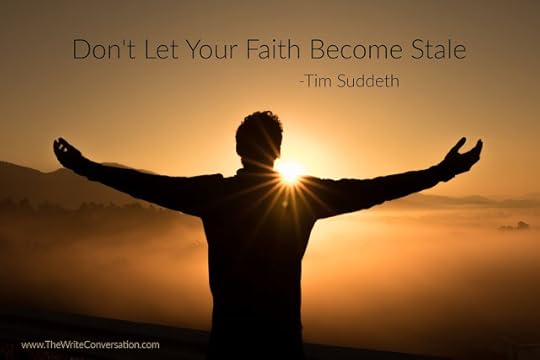
by Tim Suddeth @TimSuddeth
I have a confession to make. This staying home the last few months because of the pandemic, for me, hasn’t been all bad. I have my books, my internet, and my walks around the block. I can still take daytrips, although many of the destinations are closed. I am missing my writing groups and eating out with friends. But to keep my family well, it hasn’t been that big of a sacrifice. So I’m settling into a nice little routine here at home. Overall, I’m happy, comfortable.Sometimes, I’m afraid that I get like that in my faith. I grew up in church. I had my own seat on the back row of Mom’s WMU class before I could even walk. Now that I have an increasing amount of gray around my ears, and been fortunate to take several in-depth classes, it’s easy to think I’ve heard all the Bible teaching I need.
But faith isn’t a goal or some level of knowledge you obtain, it’s a relationship. Completing a certain Bible study or church program doesn’t instill in you some knowledge that suddenly gives you a halo or your own seat at the holy table. Falling in love with someone may include a special star-filled night on the beach, but it doesn’t end there. It doesn’t end on the wedding day. And it doesn’t end on your fiftieth anniversary. Like faith, love is a journey.
And as you travel along, the journey changes. Young love isn’t exactly like mature love. It’s still love, a relationship and commitment to your beloved. But we experience the two very differently. In young love, there are the feelings, the dreams, and the rapid pat-pat of the heart. With mature love there’s more of a trust, an understanding, and shared experiences with the other. A rapid pat-pat might cause a call to the doctor.
When your love, at any stage, stops deepening, becomes complacent, then you are flirting with trouble. It is the same in our relationships with Christ.
I faced this fear of complacency in my faith when my wife brought a new book into our house, Misreading Scripture with Western Eyes by E. Randolph Richards and Brandon J. O’Brien. It’s important to remember that America doesn’t contain or define God, and His principles are true whether in Greenville, Atlanta, New York, London, Ghana, Hanoi, or the far side of the moon. But it is easy to let our Western culture influence how we look at God.
I have to admit that the title raised my red-blooded American hackles. Who were these guys?
One of the best lessons I learned while I was in seminary came when I went to a Sunday school with one of my classmates. Clar was a missionary whose ministry involved teaching Olympic wrestling in Mongolia. He had experienced a life and culture that I can’t imagine.
We were both older than the regular college students, but the church didn’t have any other spot for two single guys. You could tell that having two seminary students made the teacher very uncomfortable.
His lesson was a good old American standard: if you try to be good and work hard, God will give you your heart’s desire.
It sounds and preaches good, but it isn’t biblical.
He may give you the desire of your heart, or He might change your heart. Or He may make you go without. Because Daddy knows what is best for His children. (Don’t get the two mixed up.)
In America, we have seen the church grow larger, richer, and more complacent. We, also, see this in our other church, the stock market. Clar had seen a church under a communist regime, persecuted but growing deeper. Same God, different perspectives.
In their book, Richards and O’Brien looks at nine areas where our Western, more affluent, culture shades the way we see God. Often it isn’t one side or the other being right, it is two different ways of seeing. But it’s important that we recognize both to get a truer picture of Our Lord.
Daddy has a way of knowing when we, His children, become complacent and He will send us something to bring us out of it. Not to punish us but to remind us to keep our eyes on Him. I would rather go through whatever the shake-up He sends (I say with much trembling.) then miss out on continuing to grow in Him.
Because Daddy is more than worth it. The thing is when you find your faith shaken, you will also find that the Rock of Ages is there beside you. And that the Pearl of Great Price is more than you could ever want or need.
Now that’s biblical. And true.
TWEETABLEDon't Let Your Faith Become Stale - @TimSuddeth on @EdieMelson (Click to Tweet)
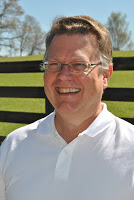 Tim Suddeth is a stay-at-home dad and butler for his wonderful, adult son with autism. He has written numerous blogs posts, short stories, and three novels waiting for publication. He is a frequent attendee at writers’ conferences, including the Blue Ridge Mountain Christian Writers Conference and a member of Word Weavers and ACFW. He lives near Greenville, SC where he shares a house with a bossy Shorky and three too-curious Persians. You can find him on Facebook, Twitter, or at timingreenville.com.
Tim Suddeth is a stay-at-home dad and butler for his wonderful, adult son with autism. He has written numerous blogs posts, short stories, and three novels waiting for publication. He is a frequent attendee at writers’ conferences, including the Blue Ridge Mountain Christian Writers Conference and a member of Word Weavers and ACFW. He lives near Greenville, SC where he shares a house with a bossy Shorky and three too-curious Persians. You can find him on Facebook, Twitter, or at timingreenville.com.
Published on July 31, 2020 22:00
July 30, 2020
The Crown of Excellence for Book Marketing Contest
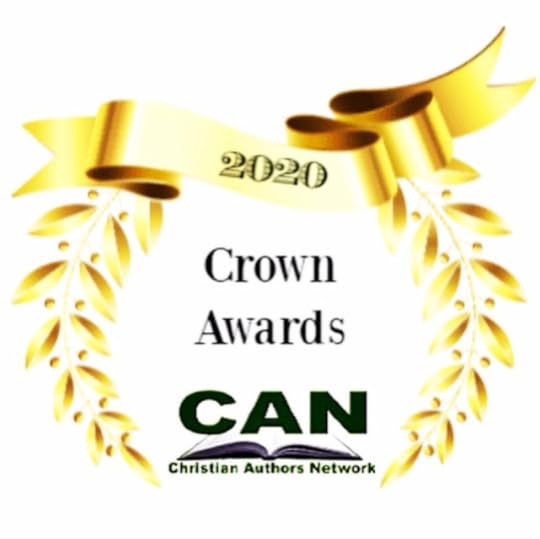 by Susan G Mathis @SusanGMathis
by Susan G Mathis @SusanGMathis Don’t we all want a marketing crown? One that lets us know we’re successful as an author with all the marketing efforts we do? I sure would. But how can we measure that, see that, know that?
Last year’s debut CAN Crown Awards did just that, and our winners showed us some wonderful results for their work. You can, too.Measuring marketing excellence, especially as an author has been too elusive for too long. But the Christian Authors Network (CAN) has developed tangible, measurable marketing standards of excellence to help Christian authors know that their marketing for books, book series, or brand if effective. After all, that’s why CAN exists!
Authors are often unsure, fearful, or reticent to tout their marketing work. And every time there’s a new platform to learn, well, our marketing confidence can be shaken. Can you relate?
What if someone showed you what a successful marketing plan looked like and how to plan to succeed by example? What if being recognized for marketing excellence earned an award—a crown— that continued to gain marketing and media attention?
Welcome to the Christian Authors Network #CANCROWN AWARDS. These awards recognize, educate, and encourage excellence in marketing and promotion skills of Christian authors.
Christian authors want to get their books, book series, and brands out to readers, retailers, and librarians. The messages in those books reflect the love and glory of God. But without an excellent marketing plan that very message may go unread. The #CANCrown Awards recognize authors for their excellence in marketing and media, and being a winner gives you continued credibility long after the contest.
By highlighting stellar examples and recognizing marketing and media expertise, the #CANCrown Awards helps all of us as authors. There are three categories for books, book series, and author brands:Visual MediaBroadcastingWeb Presence
These three categories evaluate the author’s physical materials, social media, major media, websites, blogs, and newsletters respectively. Therefore, the purpose of CAN Crown Awards is: To recognize, educate, and encourage excellence in marketing and promotion skills of all Christian authors.
The CAN Crown Awards Celebrate Excellencein Christian Media and Marketing by Authors.
THE CAN CROWN AWARDS Time is limited; the CAN Crown Awards close August 31, 2020.
Judges are independent professionals with knowledge in marketing and media. Finalists will be announced and will receive finalist logos/badges for their websites and materials.
The Christian Authors Network will announce the finalists in advance of the Crown Award Celebration. The virtual Crown Awards will be presented in November. Winners (Gold, Silver, and Bronze) will be awarded at the virtual Crown Awards. Presentations will include an overview of each winners’ campaign to an audience of filmmakers, publishing industry, and then out into the public to reach readers, retailers, and librarians.
The Christian Authors Network will also partner with authors to share finalist and winning entries to bring attention to these excellent author marketing plans. We’ll promote the winners through the many #CANCrown Awards channels of influence—all for the price of entry.
Award design and entry pages are on the CAN website. Cost per entry: $40 CAN Members/$80 non-members.
Access the entry forms on our CAN Website: https://christianauthorsnetwork.com/can-crown-awards/
FAQ:What's CAN? Christian Authors Network. Check us out here: https://christianauthorsnetwork.com
Hurry! Time’s ticking. We’ll be watching for your entry and will enjoy connecting with you.
Susan G Mathis, Christian Authors Network vice president
TWEETABLEEnter the Christian Author's Network Crown Awards for Excellence in Marketing Contest Before it's too late! @angBreidenbach @SusanGMathis on @EdieMelson (Click to Tweet)
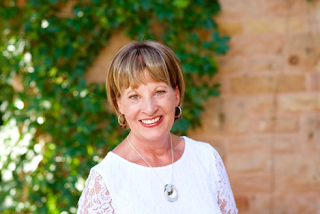 Susan G Mathis is an award-winning, multi-published author of stories set in the beautiful Thousand Islands, her childhood stomping ground in upstate NY. Her first two books of The Thousand Islands Gilded Age series, Devyn’s Dilemma and Katelyn’s Choice are available now, and she’s working on book three. The Fabric of Hope: An Irish Family Legacy, Christmas Charity, and Sara’s Surprise are also available. Visit www.SusanGMathis.com for more.
Susan G Mathis is an award-winning, multi-published author of stories set in the beautiful Thousand Islands, her childhood stomping ground in upstate NY. Her first two books of The Thousand Islands Gilded Age series, Devyn’s Dilemma and Katelyn’s Choice are available now, and she’s working on book three. The Fabric of Hope: An Irish Family Legacy, Christmas Charity, and Sara’s Surprise are also available. Visit www.SusanGMathis.com for more.
Published on July 30, 2020 22:00
July 29, 2020
Writing with Disabilities

by Kathy Neely @NeelyKneely3628
“Disability need not be an obstacle to success.” Those words were spoken by Stephen Hawking, a great physicist who had ALS, a debilitating disease. He not only spoke the words; he lived them and achieved great accomplishments in the world of science. However, I would phrase it differently. I would say that disability need not prohibit success. It doesn’t eliminate the obstacle. When I worked in education, we served students across the spectrum of abilities. I’ll share a response that a special ed teacher gave to a student with dyslexia. She said, “This is not your fault, but it is your problem.” I believe it’s important to recognize and own our challenges. Only then can we carve the path to our dreams and goals.
It’s been eight years since I was diagnosed with Parkinson’s Disease. I made the decision to retire ahead of my original schedule. Since then, I began writing and have had three novels published and another under contract. I love writing. However, my physical challenges continue to increase, and with the neuro-degenerative nature of the disease, that pattern will likely persist.
That doesn’t mean the end of my writing. In fact, I’m currently working on a manuscript with a character who has Parkinson’s. It does mean that my writing journey may look different than yours. Each disability requires its own unique plan. Here are some tips that I’ve learned along the way.
Tips for Writing with a DisabilityATTITUDE: Don’t dwell on what you can’t do. Focus on what you can do. It’s easy to fall into the pattern of comparing yourself to others. Worse than that, I sometimes compare myself to my past self. There’s no benefit to be gained. Instead, make a habit of rehearsing things you do well. Count the blessings, and I believe you’ll find abundance.
INFORMATION: Arm yourself with education about your unique situation. You can’t adequately prepare if you don’t know what to expect. Find a balance between educating yourself and obsessing. I’ve learned what my new normal is and what to expect. I avoid many internet sites and other venues where PD becomes my primary focus. It’s my problem, but it’s not who I am.
PRIORITIZE: This is so very important. We are children of God, created by Him, for Him, and with a purpose. Your priority list will differ from mine. Each challenge is unique. For me, after nurturing my relationship with God and with friends and family, I must give exercise preference. It’s vital to neuro health. I also work hard to minimize stress. It’s a bully that attacks us wherever we are physiologically weak.
GOALS: Make goals realistic. In my newly contracted novel, True North, Mallory’s father tells her, “A goal without a plan is just a daydream.” Make a plan. Organization is important for everyone, but more so when you face challenges. Look to your strength areas and priorities when setting goals. The pace of my writing slowed down considerably when I made exercise a priority. 10,000 words a week may not happen for me. Writing conferences are difficult so I look for other opportunities for workshops and networking. Don’t look to what other people are doing. Make goals achievable for you.
In the current climate of COVID-19, people are dealing with so many challenging issues. Separation from friends and family. Fear for health. Economic hardships. Isolation. Conferences and workshops have been canceled, eliminating a major opportunity to network and hone up skills. Book signings have ceased. The publishing world is feeling the effects of these issues as well, closing some imprints and laying people off. That’s a big bundle of negatives. Could the above tips help us weather the current storm of COVID? I believe they can. ATTITUDE - Shift our focus from what we can’t do and look at what we can.INFORMATION - Stay current on information but avoid obsessing. The news can become overwhelming. Pace it. PRIORITIZE - Prioritize your time and energy. I hear people talking about boredom. What an easy problem to eliminate!GOALS - Set goals. Imagine how much writing we can accomplish.
I would love to hear how you are overcoming the challenges of 2020, a year that we will long remember.
For I am the Lord your God who takes hold of your right hand and says to you, Do not fear; I will help you. Isaiah 41:13
TWEETABLE
Writing with Disabilities - tips from Kathy Neely, @NeelyKneely3628 on @EdieMelson (Click to Tweet)
Kathleen Neely resides in Greenville, SC with her husband, two cats, and one dog. She is a retired elementary principal, and enjoys time with family, visiting her two grandsons, traveling, and reading.
She is the author of The Street Singer, Beauty for Ashes and The Least of These. Kathleen won second place in a short story contest through ACFW-VA for her short story “The Missing Piece” and an honorable mention for her story “The Dance”. Both were published in a Christmas anthology. Her novel, The Least of These, was awarded first place in the 2015 Fresh Voices contest through Almost an Author. She has numerous devotions published through Christian Devotions.
Kathleen continues to speak to students about writing and publication processes. She is a member of Association of Christian Fiction Writers. Website – www.KathleenNeely.com Facebook – www.facebook.com/kathy.neely.98Twitter - https://twitter.com/NeelyKneely3628Instagram – www.Instagram.com/KathleenNeelyAuthor
Published on July 29, 2020 22:00
July 28, 2020
Mini Memoir Moment: Family Legends—Are Memories True?
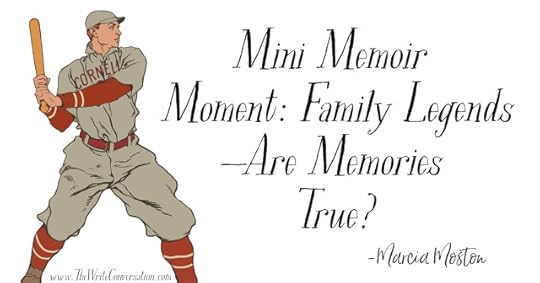
by Marcia Moston @MarciaMoston
After playing baseball in high school, my father played in a semi-pro league in the ’30s. He picked it up again in the ’50s after returning from war. He was a catcher and apparently a good hitter with a .436 batting average, although does admit to striking out against the great Satchel Paige.
Each of my siblings and I have a mental image of Dad bending over home plate with a big rip up the seat of his uniform. Whether this is from an old newspaper clipping or from one of his games we might've attended as young children, I don’t know. But the picture doesn’t seem to exist. It makes me wonder if it were a family story, told so many times we collectively imaged it.
As I was going through his baseball scrapbook, I found a news clipping about the last game in a series in which the opposing team was favored to win. My father’s team held on for ten spirited innings, finally losing 2-1, even though it seems Dad did his best to annoy, confuse, and de-energize the opposing team. This is what the sports writer had to say:
The Cathedral catcher, Chadwick, caused much discussion because of his constant delay of play throughout the game. Twice while on base the fiery backstop, advancing a base on a foul ball, took an unnecessary amount of time in returning to his rightful position. Before going to bat in the eighth he walked out within ten feet of the batter’s box and took off his shoe and stocking, replaced it, tied the other shoe, and to top off the performance tucked in his shirt and pulled up his pants before proceeding to the plate. Finally immaculate, he struck out.
After all that posturing he struck out! For those of you familiar with the famous baseball ballad “Casey at the Bat” this reads like a 1936 replay of a poem written in 1888. And maybe it’s the source of my memory.
Memories morph into images in the retelling. Much of what we remember is a reconstruction. Although the actual account may change, I think what stays true is the emotional meaning the original had for you. That’s the part that memoirists and family storytellers need to explore. Not that I’m suggesting fabrication—verify facts where facts can be verified, but own your side of the story as you remember it.
So what do you do when you remember something but someone else remembers it differently?
Tips to Tell it Differently
1. Tell your version but give your reader an alternate option: Although my sister remembers it this way . . .” Or, if it’s a family legend you could introduce it as such—the family version is . . . That’s what Rick Bragg did:
I am told it was a hot, damp night in late July 1959, one of those nights when the setting of the sun brings no relief. It might have been the heat, or something she ate—an orange slush and a Giant Dill Pickle—but about the time Charlton Heston laid eyes on that golden calf . . . I elected to emerge.
2. Use identifying words like perhaps, maybe, it could have been . . . to let your reader know you are filling in gaps or surmising something that may have happened another way.
3. Check facts where they can be checked, ask family members their versions, but in the end own your story—use the memory you have to make the point you want to give away.
Here are some ideas to help you explore your family stories:
1. Write about an event the way you remember it and then ask someone who was involved what their version is. Where do you disagree? Are there “facts” you can verify? If not, does the difference matter to the story you have come to tell?
2. What are your family legends—stories handed down to which you may or may not have memory? How have they influenced you? What about them makes them special to you and yours?
Have fun going down memory lane. And remember—no arguing if someone else is sure their version is right. They can write their own story!
Blessings,Marcia
TWEETABLEMini Memoir Moment: Family Legends—Are Memories True? - @MarciaMoston on @EdieMelson (Click to Tweet)
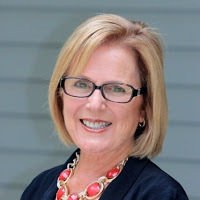 Marcia Moston is the author of Call of a Coward—the God of Moses and the Middle-Class Housewife. She was a columnist for the Greenville Journal. Her stories have appeared in several magazines and anthologies—Chicken Soup for the Soul, and Angels on Earth, among others. She’s been on faculty at the Blue Ridge Mountains Christian Writers Conference and currently teaches memoir and creative nonfiction with the OLLI at Furman University program and leads spiritual autobiography workshops for church groups.
Marcia Moston is the author of Call of a Coward—the God of Moses and the Middle-Class Housewife. She was a columnist for the Greenville Journal. Her stories have appeared in several magazines and anthologies—Chicken Soup for the Soul, and Angels on Earth, among others. She’s been on faculty at the Blue Ridge Mountains Christian Writers Conference and currently teaches memoir and creative nonfiction with the OLLI at Furman University program and leads spiritual autobiography workshops for church groups.
Published on July 28, 2020 22:00
July 27, 2020
Dipping the Quill Deeper: Finding the Path the Light Shines Upon
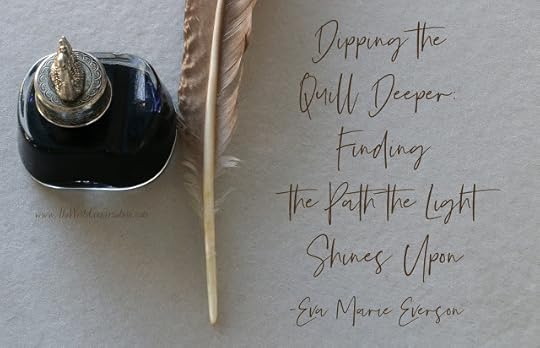
by Eva Marie Everson @EvaMarieEverson
Send forth your light and your truth, David wrote in the 43rd psalm, so they may guide me. Let them bring me to your holy mountain and to your dwelling places (ISV).
I could spend hours—literally hours—digging into the Holy Writ. With each line of verse, I stop to peer into the original text. What Hebrew or Greek or Aramaic word was used here? What do those particular words mean? How are they applied to the text? What was going on when the words were originally penned or penned about?
So was the case recently as I pored over Psalm 43. The third verse stopped me, calling me to “dip the quill deeper.”
Send forth your light . . .
I stopped at the word “light,” immediately calling to mind other verses (there are 123 of them, but I won’t list them all here) where the Hebrew word אוֹר (‘owr, pronounced: ore) is used. One of the first lines of Scripture includes this word, which means: illumination or (concrete) luminary (in every sense, including lightning, happiness, etc.):—bright, clear, day, light (-ning), morning, sun (Strong’s Definitions H215).
And God said, “Let there be light,” and there was light (Genesis 1:3, NIV).
There is, of course, there is the line often quoted from Psalm 119: 105: Thy word is a lamp unto my feet and a light unto my path (KJV). We often note that the lamp is only bright enough to shine where our feet are . . . but just how far does that light shine on the path?
In Psalm 43, David (although David is not listed as the author of 43, this sounds like David) added something more to his request for light. He also asked for “truth,” which, in the Hebrew is אֱמֶת (‘emeth, pronounced: eh'·meth), which means: stability; (figuratively) certainty, truth, trustworthiness:—assured(-ly), establishment, faithful, right, sure, true (-ly, -th), verity (Strong’s Definitions H539).
And why did David ask for these things? According to his next line: let them guide me; let them bring me to your holy mountain, to the place where you dwell (NIV).
David was speaking of Zion, to the place where he had brought the Ark of the Covenant. To the place where, one day, his son, Solomon, would build the temple. Previous to that, he may have been speaking of Mount Horeb, the mountain of God, where Moses met with God and where Elijah ran after hearing that Jezebel was after him. David needed to hear from God. He needed God’s guidance, but first, he wanted to get to the source—God.
But if he were writing these words today, where would that be? The temple is gone. No one is sure which part of Horeb was the meeting place for God and Moses or God and Elijah.
Today, through the power of the Holy Spirit, God dwells in me. And He dwells in you. So, how can we possibly write (or quote) such lines as the one David penned? Yet, I believe, we can. Because, too often, we lose our way. In these days of pandemic, these days of riots and uncertainty, these days of everyone’s obscenity-laced opinion being screamed across social media, and in these days where the rules of publishing are changing more rapidly than most can keep up with in order to reflect the changing times … we may feel lost. We need God’s light and His truth to guide us back to where we can find Him inside ourselves.
So, today, as I am pondering these things, I remind myself that God hasn’t moved. He doesn’t leave me. I may not recognize or rely on Him at times, but He has not left. I may put more of my faith in what the world tells me than what His Word tells me, but that doesn’t make His light and truth any less powerful. As the Father, He sits upon the throne; as the Son, He stands to the right of the Father, and as the Holy Spirit, He dwells in you and me.
This is a privilege, and honor. But, for writers, it also carried a responsibility.
Heavenly Father let your Light and your Truth shine through my words, both spoken and written, so that others may find their path back to you. May they be the re-center button on their spiritual GPS. I pray in the name of the One who is the Light and is the Truth. Amen.
TWEETABLE
Dipping the Quill Deeper: Finding the Path the Light Shines Upon - @EvaMarieEverson on @EdieMelson (Click to Tweet)
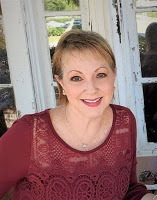 Eva Marie Everson is the president of Word Weavers International and the director of its two conferences. She is the multiple award-winning author of nearly 40 works and has received awards as a speaker and Bible teacher. Eva Marie is often seen at writers conferences across the States. She served as a mentor for Jerry B. Jenkins’ Christian Writers Guild for several years, and taught as a guest professor at Taylor University in 2011. She and her husband make their home in Central Florida where they enjoy their grandchildren. They are owned by one small dog and a princess cat.
Eva Marie Everson is the president of Word Weavers International and the director of its two conferences. She is the multiple award-winning author of nearly 40 works and has received awards as a speaker and Bible teacher. Eva Marie is often seen at writers conferences across the States. She served as a mentor for Jerry B. Jenkins’ Christian Writers Guild for several years, and taught as a guest professor at Taylor University in 2011. She and her husband make their home in Central Florida where they enjoy their grandchildren. They are owned by one small dog and a princess cat.
Published on July 27, 2020 22:00
July 26, 2020
The Story Behind the Story: In High Cotton

by Ane Mulligan @AneMulligan
My critique partners say it's my best writing. Early reviews are confirming it, thrilling me (and scaring the fire out of me). It's my 10th published book. I recently read an article that says it takes that many books to break out. Break out of what? Jail? All I truly know is I love the story and had so much fun writing it. I have Gina Holmes to thank for the idea. A critique partner from early in my writing journey, she suggested I write a historical novel but set in the Great Depression. I was intrigued. My daddy was seventeen when the stock market crashed, and he used to tell a lot of stories from that time. He grew up in a very small, rural town in South Dakota (Castlewood, SD) similar in size to what I wanted.
I started to write In High Cotton in 2010. I ended up shelving it when my agent asked where I wanted to write: contemporary or historical. At the time, I chose contemporary. I wrote (and we sold) my Chapel Springs series. When the fourth book was turned in and going through edits, my thoughts turned to what next?
What next?I talked with my agent. She'd read the early chapters of In High Cotton and said it was on-brand: an ensemble cast of strong Southern women, traversing life's issues together. She gave the project her blessing.
I had such fun researching this book. I wanted to set it in a town near where I live, but the Bona Allen Tannery (where Roy Rogers had Trigger's saddle custom made) was there and everyone in town had a job. So the setting didn't fit the story. (Watch for On Sugar Hill, coming in 2021 for that book).
I decided on a fictional town by a real location. Rivers End sits in southeast Georgia, near Uvalda (for those who like to Google those things). Two rivers, the Ocmulgee and the Oconee, converge there to form the Altamaha. The Indians called the place "where rivers end."
From there, I drew a map of Rivers End, which my publisher has included in the book. My main character, Maggie Parker, is a young widow, raising her little boy alone. Maggie owns a small grocery store her husband left her and her father-in-law wants back.
Besides running the grocery, Maggie's a writer and has a household hints newspaper column. I include a list of 1930s household hints in the book, as well as Depression ers recipes. Those hints are still viable today, and I even picked up a few to use myself.
TWEETABLEThe Story Behind the Story: In High Cotton - @AneMulligan on @EdieMelson (Click to Tweet)
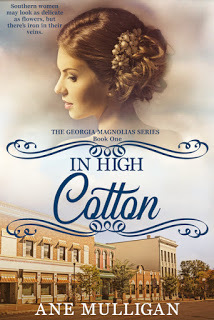 Here's the back cover copy from
In High Cotton
. I hope it piques your interest.
Here's the back cover copy from
In High Cotton
. I hope it piques your interest.Southern women may look as delicate as flowers, but there’s iron in their veins. While the rest of the world has been roaring through the 1920s, times are hardscrabble in rural South Georgia. Widow Maggie Parker is barely surviving while raising her young son alone. Then as banks begin to fail, her father-in-law threatens to take her son and sell off her livelihood—the grocery store her husband left her. Can five Southern women band together, using their wisdom and wiles to stop him and survive the Great Depression?
In High Cotton releases Aug 3rd. It’s available for preorder online at Amazon, LPCBooks, Target, and in bookstores.
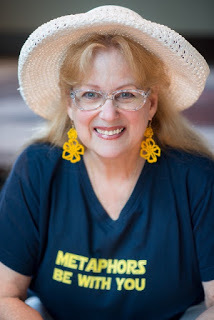 Ane Mulligan has been a voracious reader ever since her mom instilled within her a love of reading at age three, escaping into worlds otherwise unknown. But when Ane saw PETER PAN on stage, she was struck with a fever from which she never recovered—stage fever. She submerged herself in drama through high school and college. One day, her two loves collided, and a bestselling, award-winning novelist emerged. She lives in Sugar Hill, GA, with her artist husband and a rascally Rottweiler. Find Ane on her website, Amazon Author page, Facebook, Twitter, Instagram, Pinterest and The Write Conversation.
Ane Mulligan has been a voracious reader ever since her mom instilled within her a love of reading at age three, escaping into worlds otherwise unknown. But when Ane saw PETER PAN on stage, she was struck with a fever from which she never recovered—stage fever. She submerged herself in drama through high school and college. One day, her two loves collided, and a bestselling, award-winning novelist emerged. She lives in Sugar Hill, GA, with her artist husband and a rascally Rottweiler. Find Ane on her website, Amazon Author page, Facebook, Twitter, Instagram, Pinterest and The Write Conversation.
Published on July 26, 2020 22:00
July 25, 2020
Where do We Turn When the World is Upside Down
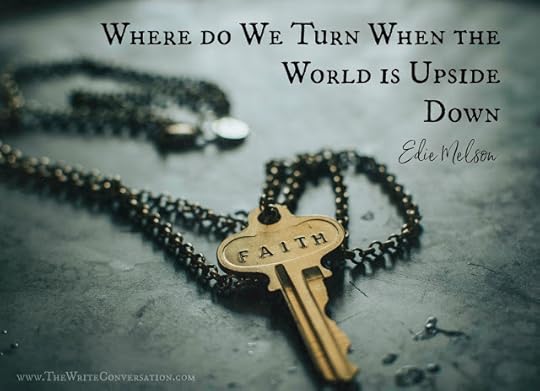
by Edie Melson @EdieMelson
My eyes shed streams of tears, because people do not keep your law. Psalm 119:136
Everywhere I turn I see believers crying out, looking for answers. Many are looking for our governments to step in and save us. And while I do have personal opinions about events of these days—what I’m truly mourning is the fact that we’re no longer looking to God for salvation, but to man.
Each of us carries a foundational idea of right and wrong. It’s something that God has instilled within us.
You see, our conscience comes from God. It was created within us when we were formed in the womb. If we were just products of Darwin’s theory, then our conscience would be weighted with a foundation of kill or be killed—survival of the fittest. Instead, we have a different foundation.
Don’t believe me? Take a look at our laws. Take a look at our day-to-day interactions. We don’t reward bullies and those who look out only for themselves. Our belief system reflects something more than that. It reflects God.
We can stifle our conscience by ignoring it and trying to re-educate it. But it’s still there, and when we once again turn our ear to that pure voice, it will spring back to life.
In these days, we each need to turn back—to look to God to dictate what is right and what is wrong. First as individuals, then as a country. When we make God our priority, then the other things will fall into place. We’ll interact with one another in love.
No, I’m not suggesting some type of hippy nirvana filled with a false sense of anything goes. Or a watered down version of who God is and how He demonstrates His love for us.
His love is the real kind.
The hard kind.
The kind that calls forLoving our enemies.Forgiving those who wrong us.Holding one another accountable.Turning the other cheek.Standing up for what is right, whether it’s the law or not.When we look to God for the answers, we’ll find unity.
Not uniformity, never that. God created each of us unique and special. But He gave us traits in common—with Him—and with each other.
So today, I’m praying for our country. And I’m not praying small. I’m not focusing on individual sins, although I'm beginning there. I know I'm not perfect. So I’m first praying about my own short comings and asking for forgiveness and a renewed sense of right and wrong. I want God to clean out the junk and put me back on a track to be more like Him. Then I’m asking God to reclaim this country as His—with His definition of right and wrong.
Can one person make a difference?
Maybe not at first.
But for a difference to be made, we must all begin alone, in a one-on-one conversation with God. Then, when all those individuals come together and return to God, absolutely.
Will you join me?
If My people who are called by My name will humble themselves, and pray and seek My face, and turn from their wicked ways, then I will hear from heaven, and will forgive their sin and heal their land. II Chronicles 7:14
TWEETABLEWhere do We Turn When the World is Upside Down? - @EdieMelson (Click to Tweet)
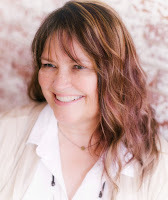 Edie Melson is a woman of faith with ink-stained fingers observing life through the lens of her camera. No matter whether she’s talking to writers, entrepreneurs, or readers, her first advice is always “Find your voice, live your story.” As an author, blogger, and speaker she’s encouraged and challenged audiences across the country and around the world. Her numerous books reflect her passion to help others develop the strength of their God-given gifts and apply them to their lives.Connect with her on her website, through Facebook, Twitter and on Instagram.
Edie Melson is a woman of faith with ink-stained fingers observing life through the lens of her camera. No matter whether she’s talking to writers, entrepreneurs, or readers, her first advice is always “Find your voice, live your story.” As an author, blogger, and speaker she’s encouraged and challenged audiences across the country and around the world. Her numerous books reflect her passion to help others develop the strength of their God-given gifts and apply them to their lives.Connect with her on her website, through Facebook, Twitter and on Instagram.
Published on July 25, 2020 22:00



